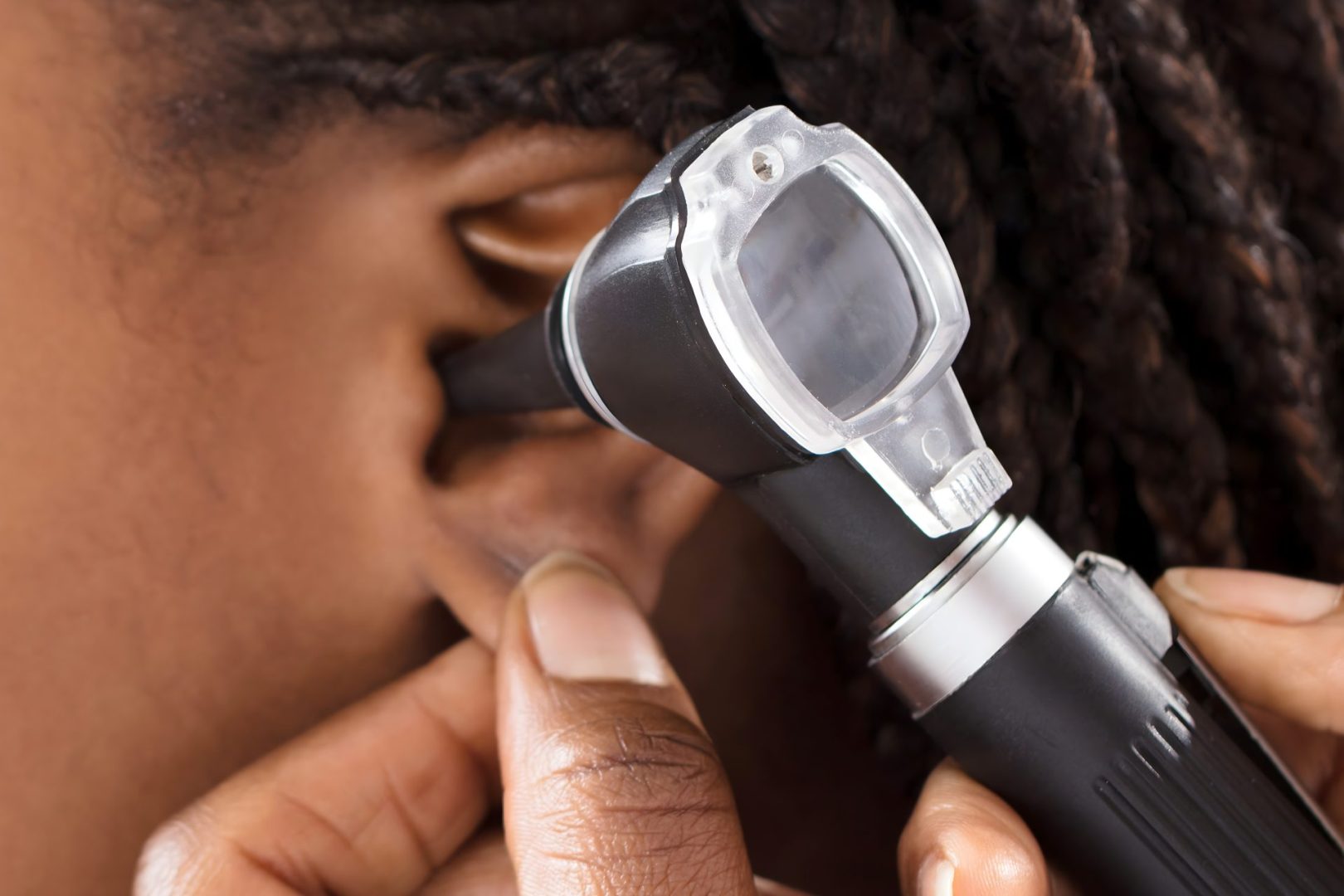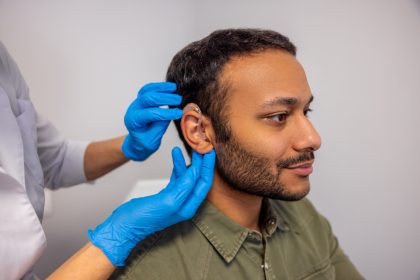Ear ringing, medically known as tinnitus, affects millions of people worldwide with sounds that range from subtle buzzing to loud, persistent noise that disrupts daily life. The phantom sounds can appear as ringing, buzzing, hissing, clicking, or roaring that only the affected person can hear. While the condition can be frustrating and disruptive, numerous natural remedies and lifestyle modifications can provide significant relief without requiring expensive treatments or medications.
The experience of tinnitus varies dramatically between individuals, with some experiencing occasional mild sounds while others deal with constant, loud noises that interfere with sleep, concentration, and quality of life. Understanding effective home remedies empowers people to take control of their symptoms and find relief through accessible, natural approaches.
Most ear ringing episodes are temporary and resolve on their own, but persistent cases benefit from comprehensive approaches that address multiple potential causes and contributing factors. The key lies in identifying which remedies work best for individual situations and combining multiple strategies for optimal results.
Understanding ear ringing fundamentals
Tinnitus occurs when the auditory system perceives sound without external sound sources present. The phantom noises can originate from various parts of the auditory pathway, including the outer ear, middle ear, inner ear, or auditory processing centers in the brain.
The condition affects people of all ages, though it becomes more common with advancing age due to natural hearing changes and accumulated exposure to loud sounds throughout life. Temporary tinnitus following concerts, loud events, or sudden loud noises typically resolves within hours or days as the auditory system recovers.
Chronic tinnitus persists for weeks, months, or years and often requires more comprehensive management approaches. The sounds can be constant or intermittent, affecting one or both ears, and may worsen during quiet periods when external sounds don’t mask the phantom noises.
Common causes and triggers
Understanding what triggers ear ringing helps identify the most appropriate remedies and prevention strategies for individual situations.
Noise exposure damage
Prolonged or sudden exposure to loud sounds can damage delicate hair cells in the inner ear, leading to tinnitus symptoms. Construction equipment, concerts, firearms, and even loud headphone use can trigger both temporary and permanent ear ringing.
The damage from noise exposure accumulates over time, with repeated exposures creating progressively more severe symptoms. Even moderate noise levels can contribute to tinnitus when exposure continues for extended periods.
Earwax blockages
Excessive earwax buildup creates pressure against the eardrum and can cause various symptoms including tinnitus, hearing loss, and ear fullness. The blockage interferes with normal sound transmission and can create phantom noises as the auditory system struggles to process muffled sounds.
Improper ear cleaning techniques, using cotton swabs, or naturally excessive wax production can contribute to blockages that trigger tinnitus symptoms.
Blood pressure and circulation
High blood pressure can create pulsatile tinnitus where individuals hear rhythmic sounds that match their heartbeat. Poor circulation to the inner ear can also contribute to various forms of tinnitus through reduced oxygen and nutrient delivery to auditory structures.
Cardiovascular health directly impacts inner ear function, making blood pressure management an important component of tinnitus treatment for many people.
Immediate relief techniques
Several techniques can provide quick relief during acute tinnitus episodes or help reduce symptoms when they become particularly bothersome.
Sound masking strategies
Background noise helps mask tinnitus sounds and makes them less noticeable or bothersome. White noise machines, fans, soft music, or nature sounds can effectively cover phantom noises and provide immediate relief.
The key involves finding sounds that mask the tinnitus without being loud enough to cause additional hearing damage. Many people find that consistent, steady sounds work better than varying or intermittent noises.
Gentle ear massage
Massaging the area around the ears and along the jaw can help improve circulation and reduce muscle tension that sometimes contributes to tinnitus. Use gentle circular motions around the ear opening and along the mastoid bone behind the ear.
Jaw muscle massage can be particularly helpful since tension in these muscles can affect ear function through shared nerve pathways and blood supply connections.
Pressure point stimulation
Applying gentle pressure to specific points around the ears and head may help reduce tinnitus symptoms in some individuals. The points include areas just in front of the ear opening, behind the earlobe, and at the base of the skull.
Hold gentle pressure for 30-60 seconds at each point, repeating as needed throughout the day when symptoms become bothersome.
Natural dietary approaches
Certain foods and nutrients can influence tinnitus symptoms through their effects on circulation, inflammation, and overall auditory system health.
Anti-inflammatory foods
Chronic inflammation can worsen tinnitus symptoms, making anti-inflammatory foods an important part of natural treatment approaches. Fatty fish rich in omega-3 fatty acids, leafy greens, berries, and nuts provide compounds that help reduce inflammation throughout the body.
Turmeric, ginger, and garlic contain natural anti-inflammatory compounds that may help reduce tinnitus severity when consumed regularly as part of a balanced diet.
Circulation-supporting nutrients
Foods that support healthy blood circulation can benefit tinnitus sufferers, particularly those with circulation-related symptoms. Beets, dark chocolate, pomegranates, and citrus fruits contain compounds that support blood vessel health and circulation.
Adequate hydration also supports proper circulation and inner ear fluid balance, both of which can influence tinnitus symptoms.
Foods to limit
High-sodium foods can worsen tinnitus in some individuals by affecting fluid balance and blood pressure. Processed foods, restaurant meals, and packaged snacks often contain excessive sodium that may exacerbate symptoms.
Caffeine and alcohol can affect circulation and sleep quality, potentially worsening tinnitus symptoms in sensitive individuals. Monitoring individual responses to these substances helps determine their impact on personal symptoms.
Herbal remedies and natural supplements
Several herbs and natural compounds have shown promise for reducing tinnitus symptoms through various mechanisms including improved circulation, reduced inflammation, and antioxidant protection.
Ginkgo biloba benefits
This herb has been traditionally used for circulation problems and may help some people with tinnitus through its effects on blood flow to the inner ear. Ginkgo contains compounds that may protect against oxidative damage and support healthy circulation.
The herb typically requires several weeks of consistent use before benefits become apparent, and individual responses vary significantly between users.
Zinc supplementation
Zinc deficiency has been linked to tinnitus in some individuals, and supplementation may help reduce symptoms in those with low zinc levels. The mineral plays important roles in immune function and cellular repair processes that affect auditory system health.
Food sources of zinc include pumpkin seeds, chickpeas, cashews, and lean meats. Supplementation should be considered carefully since excessive zinc can interfere with copper absorption and cause other health issues.
Magnesium support
This mineral supports nerve function and may help protect against noise-induced hearing damage that can contribute to tinnitus. Magnesium also supports healthy blood pressure and circulation, which can benefit some forms of tinnitus.
Dark leafy greens, nuts, seeds, and whole grains provide natural sources of magnesium that support overall health while potentially benefiting tinnitus symptoms.
Stress management and relaxation techniques
Stress and anxiety often worsen tinnitus symptoms, creating a cycle where the ear ringing increases stress levels, which in turn makes the tinnitus more noticeable and bothersome.
Deep breathing exercises
Controlled breathing techniques activate the body’s relaxation response and can help reduce the stress that exacerbates tinnitus symptoms. Practice slow, deep breathing for 5-10 minutes several times daily, focusing on lengthening exhales to promote relaxation.
Box breathing, where inhales, holds, exhales, and pauses are all equal lengths, provides a structured approach that many people find helpful for managing tinnitus-related stress.
Progressive muscle relaxation
Systematically tensing and relaxing different muscle groups helps reduce overall physical tension that can contribute to tinnitus symptoms. Start with toe muscles and work upward through the body, tensing each group for 5 seconds before releasing.
This technique is particularly helpful before bedtime when tinnitus often seems more noticeable in quiet environments.
Meditation and mindfulness
Regular meditation practice can help change the emotional response to tinnitus sounds, making them less distressing even when they remain audible. Mindfulness techniques teach acceptance of the sounds rather than fighting against them.
Start with short 5-10 minute sessions and gradually increase duration as the practice becomes more comfortable and natural.
Sleep optimization strategies
Tinnitus often becomes more noticeable at bedtime when environmental sounds decrease, making sleep quality a crucial component of comprehensive tinnitus management.
Bedroom sound environment
Creating consistent background noise in the bedroom helps mask tinnitus sounds during sleep. Sound machines, fans, or soft music can provide steady masking without being disruptive to sleep quality.
Avoid complete silence, which can make tinnitus more prominent, while also avoiding sounds that are too stimulating or variable in volume.
Sleep positioning
Elevating the head slightly can improve circulation and reduce fluid buildup that sometimes contributes to tinnitus symptoms. Use an extra pillow or adjustable bed if available to find the most comfortable position.
Side sleeping may help some individuals by promoting better drainage from the ears, though individual comfort should guide positioning choices.
Bedtime routines
Establishing consistent pre-sleep routines signals the body to prepare for rest and can help reduce anxiety about tinnitus interfering with sleep. Include relaxation techniques, gentle stretching, or reading in dim light.
Avoid stimulating activities, bright screens, and caffeine in the hours before bedtime to support better sleep quality despite tinnitus presence.
Physical therapy and exercise approaches
Regular physical activity and specific exercises can help reduce tinnitus symptoms through improved circulation, stress reduction, and overall health benefits.
Cardiovascular exercise
Regular aerobic exercise improves circulation throughout the body, including to the inner ear structures that can be affected by tinnitus. Walking, swimming, cycling, or dancing for 30 minutes most days provides circulation benefits.
Exercise also releases endorphins that naturally improve mood and can help reduce the distress associated with chronic tinnitus symptoms.
Neck and jaw exercises
Tension in neck and jaw muscles can contribute to certain types of tinnitus through shared nerve pathways and blood supply connections. Gentle stretching and strengthening exercises for these areas may help reduce symptoms.
Neck rolls, gentle jaw stretches, and shoulder blade squeezes can be performed throughout the day to maintain muscle flexibility and reduce tension.
Yoga and tai chi
These mind-body practices combine physical movement with stress reduction techniques, providing multiple benefits for tinnitus management. The gentle movements improve circulation while the mindfulness components help manage stress responses.
Both practices can be adapted for different fitness levels and physical abilities, making them accessible options for most people dealing with tinnitus.
Environmental modifications
Making changes to living and working environments can significantly reduce tinnitus triggers and provide ongoing symptom relief.
Noise level management
Protecting ears from further noise damage prevents tinnitus from worsening while allowing existing symptoms to potentially improve. Use ear protection during loud activities and keep personal audio device volumes at safe levels.
Create quieter spaces at home by using soft furnishings, rugs, and sound-absorbing materials that reduce harsh echoes and sudden loud sounds.
Air quality improvements
Poor air quality and allergens can contribute to sinus congestion and inflammation that affects ear function. Use air purifiers, maintain proper humidity levels, and address dust and allergen sources in living spaces.
Indoor plants can naturally improve air quality while providing visual appeal and stress-reducing benefits that support overall tinnitus management.
When to seek additional help
While many cases of tinnitus respond well to home remedies and lifestyle modifications, certain situations warrant professional evaluation to rule out underlying conditions or access additional treatment options.
Concerning symptoms
Sudden onset tinnitus, especially when accompanied by hearing loss, dizziness, or ear pain, should be evaluated promptly to rule out conditions requiring immediate treatment.
Pulsatile tinnitus that matches heartbeat rhythms may indicate vascular issues that benefit from medical evaluation and specific treatments.
Progressive worsening
Tinnitus that gradually worsens over time or becomes increasingly disruptive to daily activities may benefit from comprehensive evaluation to identify underlying causes and access additional treatment options.
New symptoms developing alongside existing tinnitus, such as balance problems or significant hearing changes, should be professionally evaluated.
Combining multiple approaches
The most effective tinnitus management often involves combining several different remedies and techniques to address various contributing factors simultaneously.
Personalized treatment plans
Different individuals respond better to different combinations of treatments, making it important to experiment with various approaches to find the most effective personal strategy.
Keep a symptom diary to track which remedies provide the most benefit and identify patterns in symptom severity related to activities, stress levels, or environmental factors.
Gradual implementation
Introduce new remedies gradually to identify which approaches provide the most benefit without overwhelming daily routines with too many simultaneous changes.
Start with the most accessible and low-risk remedies like sound masking and stress reduction before progressing to supplements or more complex interventions.
Success with tinnitus management often requires patience and persistence as many natural remedies take time to show their full effects. The combination of immediate relief techniques for acute symptoms and long-term strategies for overall management provides the best foundation for reducing tinnitus impact on daily life.
Most people can find significant relief through natural approaches, though the specific combination of effective remedies varies between individuals. The key lies in maintaining realistic expectations while consistently applying proven techniques that address both the physical and emotional aspects of living with tinnitus.













